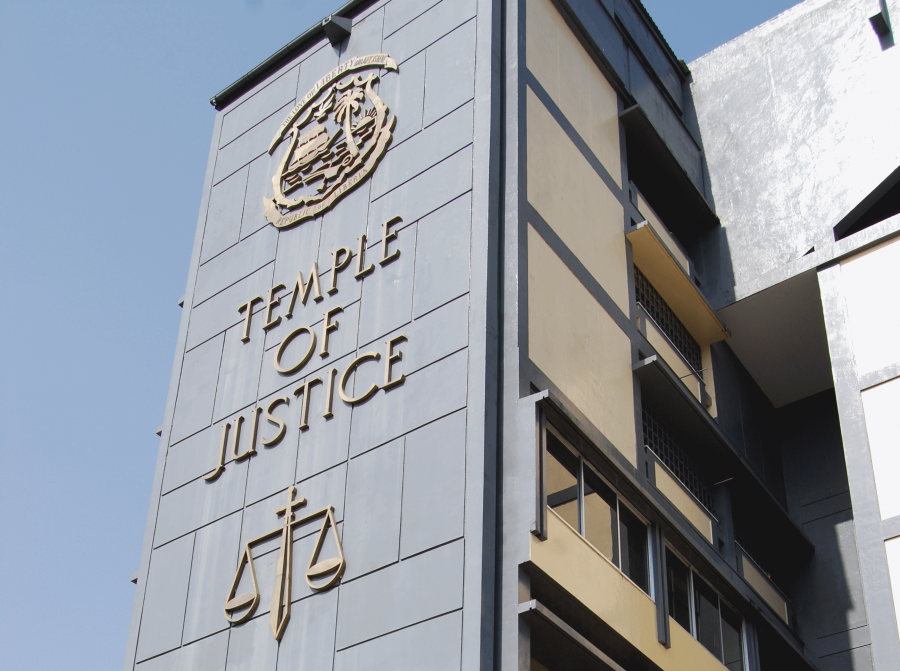MONROVIA, Montserrado – Monrovia Traffic Court Judge Jomah Jallah has ordered the arrest of the “living body†of popular recording artist Quincy Burrowes for violating the vehicle and traffic laws.
Burrowes, who performed under the moniker ‘Quincy B,’ died on March 3, 2017, as a result of a fatal motor accident on Tubman Boulevard in Sinkor while returning from a popular karaoke event at Angler’s Bar and Restaurant.
Jallah, in a writ of arrest issued on Tuesday, ordered the sheriff to bring before the court, the living body of the defendant to answer to charges of excessive speeding and reckless driving which led to death, injury, and damage to properties.
The state, as the prosecution in the case, is seeking damages to be paid by the defendant’s representative as a result of his action.
The judge’s action follows an accident investigation report released by the Liberia National Police clarifying the circumstances that led to the death of the artist.
The report revealed that Quincy B died as a result of excessive speeding and reckless driving, which violated section 10.10 of the vehicle and traffic laws.
The law requires drivers to operate at a speed of no more than 35 miles per hour in residential zones. The police report explained that there would have only been minor injury and damages caused by an accident occurring while operating at 35 miles per hour.
“But when the driver is speeding and an accident happens, the injury will be serious just like the case of Quincy, which resulted in his death and one person sustaining a broken leg,†it added.
The law says a person who violates the provisions of the law is subject to a fine of not more than US$100.
As a result of the high speed, the report said the 2007 Toyota Camry driven by the artist somersaulted into the air up to 52 feet.
The police investigation also revealed that immediately after the artist entered the curve, he lost control of his car apparently as he tried to dodge a vehicle that was coming in from the fence of the UNMIL headquarters in order to avoid a head-on collision.
However, the opposite vehicle was on its rightful lane, and bears no responsibility for the artist’s death, the report clarified.
The report added that testimonies gathered from survivors of the accident revealed that Quincy B was driving while at the same time using his phone, another violation of the law.
“In a nutshell, Quincy B is responsible for his own death and the injury his friend received,†the report noted.
It was not, however, revealed by the investigation whether Quincy B was wearing his seatbelt the night of the accident.
The police also charged Lewiz McCarthy, manager of the late artist and owner of the vehicle, for civil liability and violation of the insurance law of Liberia.
McCarthy, who is currently undergoing court trial, is being held responsible for injury expenses for artist Maurice Terziq Gayflor, popularly known as CIC, who was also involved in the accident, because the car was not insured, according to the police charges.
Under Liberian law, every owner of a vehicle used or operated on a highway is liable and responsible for deaths or injuries to a person or property resulting from negligence in the use or operation of such vehicle.
The late singer did not have a driver’s license and the vehicle was registered in McCarthy’s name. The police say this is in violation of its motor vehicle regulations.
When contacted, McCarthy said he could not speak to The Bush Chicken on the matter, because he was due in court for a final judgment on Monday.
The action of the traffic court has prompted debates among social media users. It is still unclear why the state is pursuing a case against someone who is deceased.
Lawrence Chea, a political commentator, said usually, the essence of filing a lawsuit against a dead person is to get damages in civil cases.
However, he said if the state is the plaintiff, the matter becomes criminal, rather than civil because the state under the law cannot prosecute civil cases.
“Most legal jurisdictions would tell you that if it is a criminal case, and the defendant dies, the state cannot prosecute, because the essence of prosecution in criminal cases is to punish someone, and if that person is dead, then who do you punish if the defendant is guilty, but already dead?†he said.


